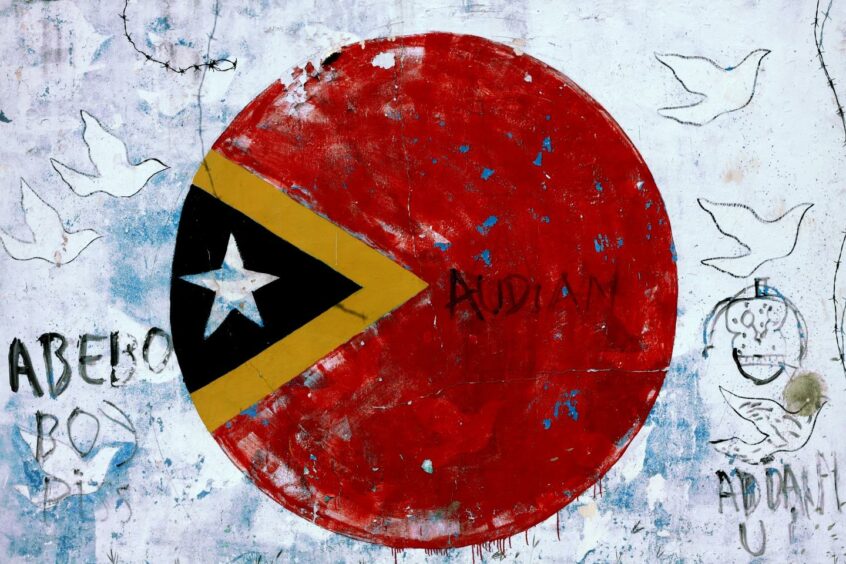
Australian operator Santos (ASX:STO) is preparing to decommission the floating storage and offloading (FSO) facility, as well as platforms, at Bayu Undan offshore East Timor, as soon as possible, as it accelerates plans for a giant carbon capture and storage (CCS) hub at the mature field.
The FSO, which is due to be disconnected by December latest, could be decontaminated offshore or it might be moved to East Timor, also known as Timor Leste, for treatment. After decontamination the vessel will most likely be shipped to Turkey for decommissioning, industry sources told Energy Voice.
Santos is keen to pull forward decommissioning activities as “there is a lot of money at stake” to get the production equipment removed “as soon as possible” with plans to transform Bayu Undan into a giant CCS facility, an industry source close to the project told Energy Voice.
The whole infrastructure needs to be dismantled, including the subsea pipelines, added the source. The Bayu-Undan offshore facilities consist of a floating storage and offloading facility (FSO) and three fixed platforms, a remote wellhead platform (WPI), a compression, utilities, and quarters platform (CUQ) and a drilling, production, and processing platform (DPP).
Gas-liquids production from the Bayu-Undan field in the Timor Sea will likely cease towards the end of this year, operator Santos reported in its latest operational review in April. The continued decline is in line with expectations, said Santos.
Santos is looking at methods of cleaning the Bayu Undan facilities offshore as a base case with an option to bring the FSO into Tibar port in East Timor for further clean up in preparation of going to Europe for final decommissioning, said a Dili-based source.
“Santos has always identified that handling of any waste in Timor Leste would have to be done in accordance with Australian / international standards. Currently, there are no facilities to handle all the waste types in Timor Leste, however this is being looked at as part of the decommissioning work scope,” added the source.
Local content in East Timor will also be a focus, added a separate industry source.
Bayu-Undan is located 500km offshore Darwin, Australia, in the Timor Sea, and is 250km south of East Timor in waters 80 metres deep.
Santos has proposed to use the Bayu Undan reservoir for capturing and storing carbon dioxide (CO2) from a new field it is developing off northwestern Australia, the $3.6 billion Barossa project, where the gas has a very high CO2 content compared to other projects in the region. Gas from Barossa will be processed at the Darwin liquefied natural gas (LNG) terminal in northern Australia for export to countries, such as Japan and South Korea, which are demanding cleaner gas to meet their net-zero aspirations.
Barossa is due to start pumping gas in 2025, and Santos has said it expects Bayu Undan CCS to be ready when the field starts up. It sees the Bayu Undan reservoir eventually being able to store 10 million tonnes of CO2 a year.
Santos’ South Korean partner in Barossa, energy company SK E&S, is under increasing pressure from Korean financiers to ensure the project has CCS locked in.
Santos aims to take a final investment decision (FID) in 2023 on the CCS project, which it claims has the potential to be the largest in the world. In March, Santos announced it had started front-end engineering and design (FEED) work for the proposed CCS project.
More information on the Bayu Undan decommissioning and contracting scope of work is available here.
Santos has a 43.4% operated interest in Bayu-Undan and Darwin LNG. The remaining interest is held by SK E&S (25%), INPEX (11.4%), ENI (11%), JERA (6.1%) and Tokyo Gas (3.1%).
